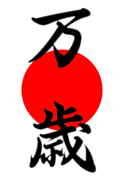Japan’s Nikkei Index… Banzai Or Hara-Kiri?

 From 1950-1990 Japanese investors were ever shouting banzai…Banzai…BANZAI. The term “BANZAI” is deeply rooted in the proud Nippon culture and remarkable history for countless generations. It has several related meanings, depending on the context in which used. In wartime it can mean CHARGE…or VICTORY. It can also imply LONG LIFE. Indeed it is an all-purpose spirit elevating cheer! Moreover, it is an expression to inspire confidence and motivation in the minds of those around you. From 1950-1990 one could hear Tokyo investors enthusiastically shouting: banzai…Banzai…BANZAI – as the Nikkei Stock Index went ballistic from nearly “0” in 1950 to its all-time high 39,000 four decades later (see first chart below).
From 1950-1990 Japanese investors were ever shouting banzai…Banzai…BANZAI. The term “BANZAI” is deeply rooted in the proud Nippon culture and remarkable history for countless generations. It has several related meanings, depending on the context in which used. In wartime it can mean CHARGE…or VICTORY. It can also imply LONG LIFE. Indeed it is an all-purpose spirit elevating cheer! Moreover, it is an expression to inspire confidence and motivation in the minds of those around you. From 1950-1990 one could hear Tokyo investors enthusiastically shouting: banzai…Banzai…BANZAI – as the Nikkei Stock Index went ballistic from nearly “0” in 1950 to its all-time high 39,000 four decades later (see first chart below).

(Source: http://www.businessinsider.com/long-term-nikkei-chart-from-fred-2013-8 )
However, since its all-time high of 39,000 in January 1990, the hapless Nikki Index has relentlessly tumbled, Tumbled and TUMBLED on-balance…with only sporadic bounces when the index was too oversold (See next chart).

( http://stockcharts.com/h-sc/ui?s=%24NIKK&p=M&st=1980-01-01&en=today&id=p01288401689 )
Needleless to say, the disheartening relentless decline of Japan’s Nikkei Index from 1990 to today congers up negative investor thoughts of Hara–Kiri (or self-punishment). This is especially poignant if we compare the relative performance of the Nikkei Index to that of the DOW (USA), FTSE UK), DAX (Germany), Hong Kong Stock Indices and GOLD since January 1990. Here is the average performance (i.e. Total period return/25-year period):
Hong Kong………………………gained nearly +23% average per year
DOW (USA)……………………..gained nearly +19% average per year
DAX (Germany)……………….gained nearly +17% average per year
FTSE (UK)………………………gained nearly +6% average per year
Gold (bullion)………………….gained nearly +7% average per year
Nikkei (Japan)………………….LOST OVER-2% average per year!!

http://stockcharts.com/h-sc/ui?s=%24NIKK&p=M&st=1990-01-01&en=today&id=p57338871055
Sadly, what might leap to the minds of some horrified investors in Japan is the frightening vision of Hara–Kiri. What possibly could have been the cause and/or reasons why the Nikkei Index did so poorly during a protracted period of investor bonanza in the rest of the financial world during the last 25 years?!
There are a number of reasons WHY the performance of the Nikkei Index has done so poorly since 1990. However, one of the primary drivers forcing the value of Japanese stocks downward has indirectly been the relentlessly constant increase in the value of its yen currency. The chart below shows the increasing trend in the yen value vs ever decreasing Nikkei Index over the past 25 years. Obviously, they run inverse to each other.

Decades ago Japan was the world’s dominant exporter of electronics, radios, TVs, many auto makes, office machinery, scientific and optical equipment, and semiconductors and other electronic components. Unfortunately, the constantly rising value of the yen priced Japanese products out of the international markets. That is to say Japanese products lost their heretofore competitive edge via-a-vis products from China, Korea and India and other lower currency cost nations. Consequently, the Nippon companies selling these products lost global market share…which was ultimately reflected in the price of their listed stocks in the Nikkei Index. The upshot is: A currency too dear is the death knell for international export competitiveness! Here is a partial list of Japanese cars now being manufactured in the USA:

Here is the Sorrowful Yen Currency Gospel: Measured from the end of 1989, the yen has risen 87 percent against the US dollar and 94 percent against the British pound. It has even risen against that traditional icon of monetary rectitude, the Swiss franc. It is imperative to recall that the Nikkei Index peaked at the end of 1989. Subsequently, the Nikkei Index has been on-balance sliding down…ever since! It’s worth repeating: The upshot is:
A currency too dear is the death knell for international export competitiveness!
Effectively, during the past two decades the yen’s incessantly growing “Goliath” value had effectively priced its home manufactured products out of world markets.
But the monetary sun is again rising in the East. During the last three years the Central Bank of Tokyo has rectified the past problem by progressively LOWERING THE YEN’S VALUE, which (accordingly) has fueled the Nikkei Index up dramatically!

Three cheers for Tokyo: banzai…Banzai…BANZAI !!!!!
The only problem facing the Nikkei Index today is the global bear tendency of all major world indices.
In any case it behooves all prudent Japanese investors to also consider GOLD as an alternative investment to maintain the purchasing power of their well-earned and deserved savings.
BANZAI to all investors…worldwide – and may the ‘BEARS” be subject to Hara-Kiri.
********
Related Article: Stocks To Crash Worldwide In 2016















